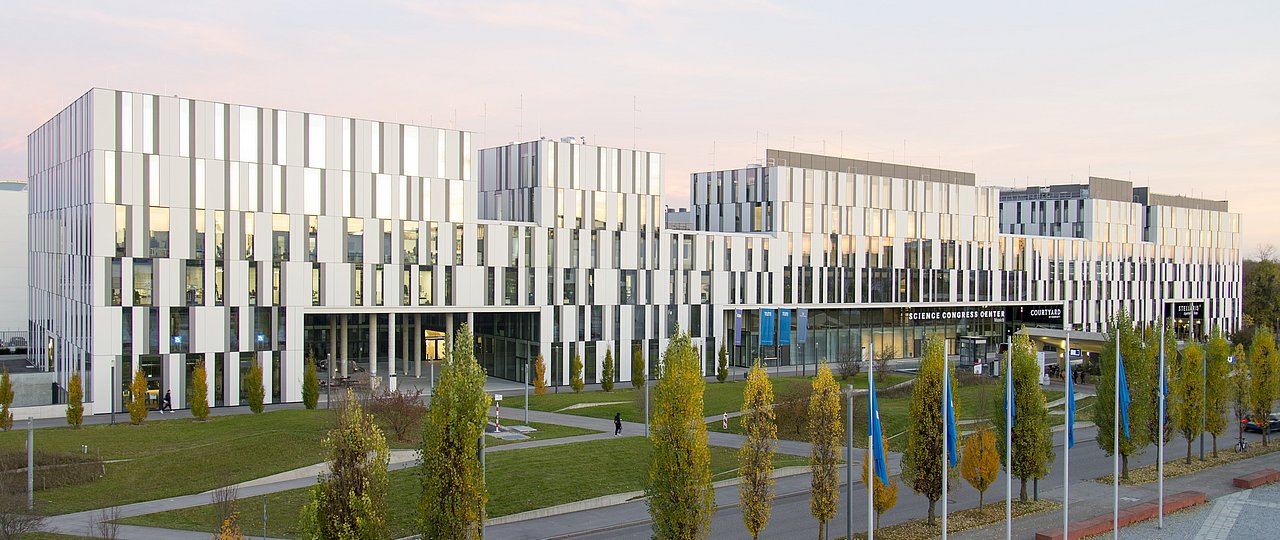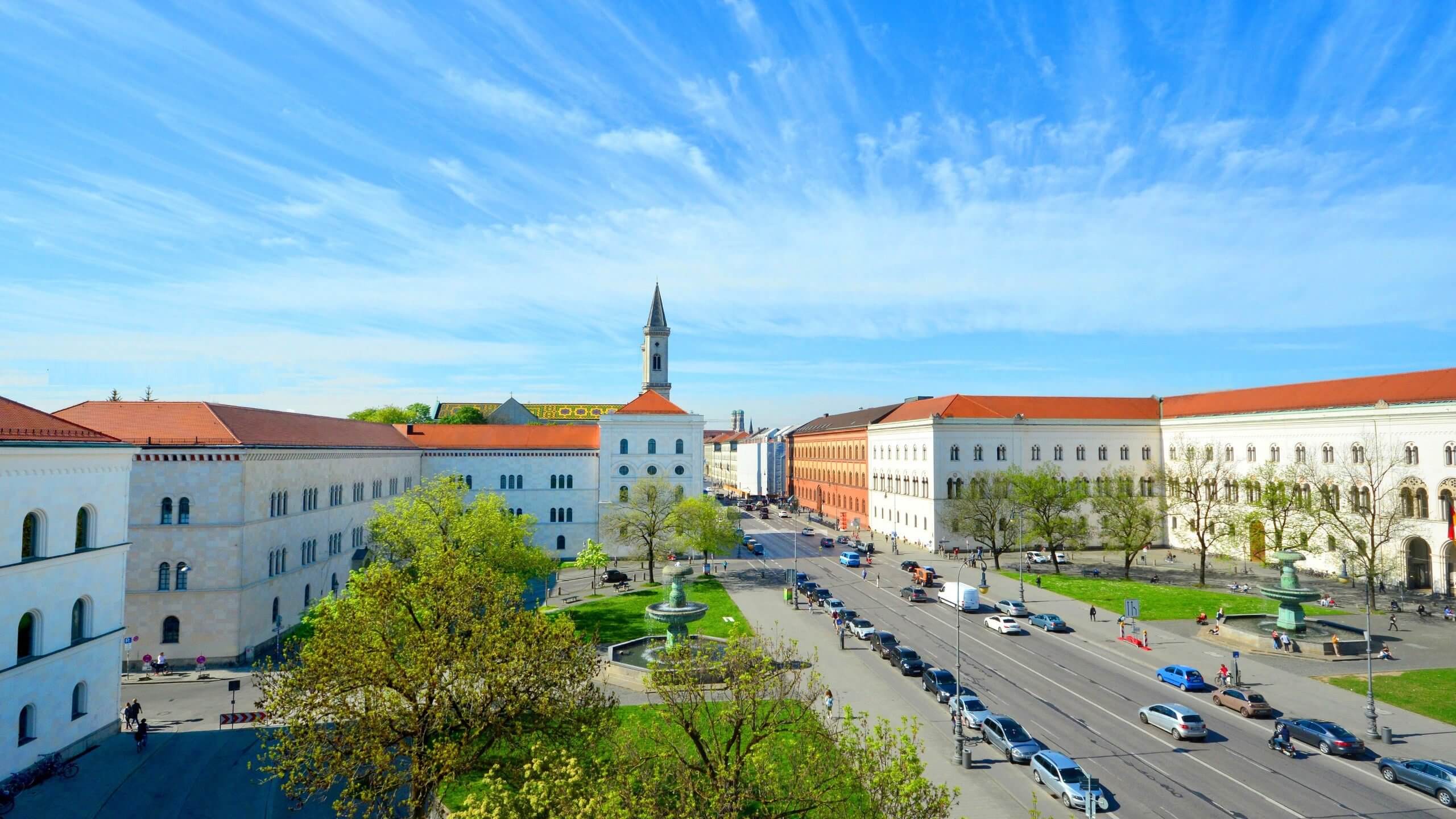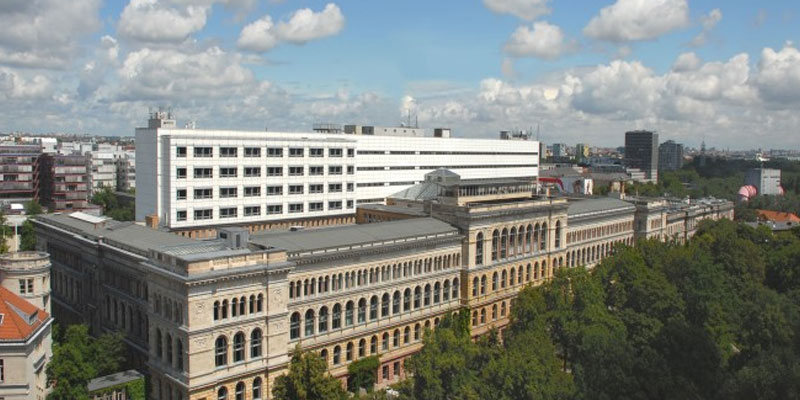Germany is renowned for its strong educational system, particularly in the fields of engineering and technology. For students aspiring to excel in Information Technology (IT), Germany offers several top-tier universities. This article evaluates the best IT universities in Germany based on academic reputation, research output, faculty quality, industry connections, infrastructure and resources, student support services, and graduate employment rates and salaries.
The 5 best IT universities in Germany
1. Technical University of Munich (TUM)

Academic Reputation:
Technical University of Munich (TUM) consistently ranks among the top universities globally and is particularly esteemed in engineering and IT. According to the QS World University Rankings 2024, TUM is ranked 28th globally and 1st in Germany for computer science.
Research Output:
TUM is a powerhouse of research, contributing significantly to advancements in IT. The university hosts multiple research institutes such as the Institute for Advanced Study and the Munich Data Science Institute. TUM’s researchers frequently publish in top-tier journals, contributing to its high research output.
Faculty Quality:
The faculty at TUM includes numerous award-winning professors and researchers, including recipients of prestigious awards like the Leibniz Prize. The faculty’s expertise spans a wide range of IT sub-disciplines, ensuring comprehensive education and guidance for students.
Most popular IT major/faculty: The Informatics Department is one of the most popular faculties at TUM. The Master’s program in Informatics, in particular, is highly sought after due to its comprehensive curriculum and research opportunities.
Industry Connections:
TUM has strong ties with leading tech companies such as Siemens, BMW, and Google. These partnerships provide students with numerous internship opportunities and pathways to employment post-graduation.
Infrastructure and Resources:
TUM boasts state-of-the-art facilities, including modern laboratories, the TUM library system, and specialized IT research centers. These resources support both learning and innovation.
Student Support Services:
TUM provides extensive support services, including career counseling, academic advising, and a variety of extracurricular activities. The university’s career service is particularly noted for its effectiveness in helping students secure jobs.
TUM also provides good support for international students through its International Center. Services include orientation programs, language courses, academic advising, and assistance with housing and visa issues. The Buddy Program pairs international students with local students to help them integrate into campus life.
Employment Rate and High Salary:
Graduates of TUM’s IT programs enjoy high employability and competitive salaries. According to the 2023 Graduate Employability Rankings, TUM ranks 20th worldwide for graduate employability.
Approximately 95% of IT students of TUM find jobs within six months of graduation. Common job titles for TUM IT graduates include Software Engineer, Data Scientist, IT Consultant, and System Architect. The average starting salary for TUM IT graduates is around €60,000 per year, with top earners exceeding €80,000 annually.
2. Ludwig Maximilians University Munich (LMU)

Academic Reputation:
LMU Munich is another prestigious institution, renowned for its academic excellence. It ranks 59th globally and 2nd in Germany for computer science according to the QS World University Rankings 2024.
Research Output:
LMU is a leader in research, with significant contributions to IT. The university hosts several renowned research centers, including the Center for Information and Language Processing and the Munich Center for Machine Learning.
Faculty Quality:
LMU’s faculty includes highly respected academics and researchers. The university attracts top talent from around the world, ensuring a high standard of education and mentorship.
Most popular IT major/faculty: The Faculty of Mathematics, Informatics, and Statistics is highly popular at LMU. The Bachelor’s program in Informatics attracts a large number of students due to its strong theoretical foundation and practical applications.
Industry Connections:
LMU maintains strong industry links, collaborating with companies like Microsoft, IBM, and Allianz. These partnerships facilitate internships, research collaborations, and job placements.
Infrastructure and Resources:
LMU offers excellent facilities, including advanced computing labs, an extensive library network, and dedicated research institutes. These resources support a robust learning and research environment.
Student Support Services:
The university offers comprehensive student support services, including career services, counseling, and a wide range of student organizations and activities.
LMU offers a range of services for international students through its International Office. These services include pre-arrival information, orientation programs, German language courses, and intercultural training. The university also provides counseling services and organizes social and cultural events to help international students adjust to life in Munich.
Employment Rate and High Salary:
LMU graduates are highly sought after by employers. The university’s strong reputation and industry connections ensure high employment rates and competitive salaries for its alumni.
LMU’s IT students have an employment rate of around 93% within six months of graduation. Typical job titles include IT Project Manager, Cybersecurity Analyst, Software Developer, and AI Specialist. The average starting salary for LMU IT graduates is approximately €50,000 per year, with potential for rapid salary growth.
3. RWTH Aachen University
Academic Reputation:
RWTH Aachen is highly regarded, especially in engineering and technology fields. It ranks 99th globally and 3rd in Germany for computer science according to the QS World University Rankings 2024.
Research Output:
RWTH is known for its prolific research output. The university hosts numerous research centers, including the IT Center and the Aachen Institute for Advanced Study in Computational Engineering Science.
Faculty Quality:
The faculty at RWTH includes leading experts in IT and computer science. Their extensive research and industry experience enrich the academic programs and provide students with valuable insights.
Most popular IT major/faculty: The Faculty of Electrical Engineering and Information Technology is among the most popular at RWTH Aachen. The Master’s program in Computer Engineering is particularly well-regarded for its focus on both hardware and software aspects of IT.
Industry Connections:
RWTH has strong industry ties, collaborating with leading tech companies such as Intel, Nokia, and Bosch. These partnerships offer students ample internship and job opportunities.
Infrastructure and Resources:
RWTH provides state-of-the-art facilities, including modern labs, the University Library, and specialized research institutes. These resources are crucial for high-quality education and research.
Student Support Services:
RWTH offers extensive support services, including academic advising, career services, and numerous student organizations. These services help students navigate their academic and professional paths.
RWTH Aachen’s International Office provides comprehensive support for international students. This includes orientation programs, language courses, academic advising, and assistance with finding accommodation. The university also offers career services tailored to the needs of international students, helping them navigate the German job market.
Employment Rate and High Salary:
Graduates from RWTH Aachen enjoy high employment rates and competitive salaries. The university’s strong industry connections and practical focus prepare students well for the job market.
RWTH Aachen reports an employment rate of 94% for its IT graduates within six months of graduation. Graduates commonly hold positions such as Network Engineer, Systems Analyst, Software Engineer, and Research Scientist. The average starting salary for RWTH IT graduates is around €52,000 per year, with experienced professionals earning significantly more.
4. Karlsruhe Institute of Technology (KIT)

Academic Reputation:
KIT is renowned for its strong focus on technology and engineering disciplines. It ranks 136th globally and 4th in Germany for computer science according to the QS World University Rankings 2024.
Research Output:
KIT is a leader in IT research, with numerous research institutes such as the Steinbuch Centre for Computing and the Institute of Applied Informatics and Formal Description Methods. The university’s research output is substantial and impactful.
Faculty Quality:
KIT’s faculty includes distinguished professors and researchers with significant contributions to IT and related fields. Their expertise ensures a high-quality education for students.
Most popular IT major/faculty: The Faculty of Informatics at KIT is one of the most popular faculties. The Bachelor’s program in Informatics is highly regarded for its rigorous curriculum and research opportunities in areas such as artificial intelligence and cybersecurity.
Industry Connections:
KIT has robust industry connections, partnering with companies like SAP, Siemens, and ABB. These partnerships provide students with valuable internship and job placement opportunities.
Infrastructure and Resources:
KIT offers excellent facilities, including cutting-edge laboratories, an extensive library system, and dedicated research centers. These resources support both education and research.
Student Support Services:
This university provides comprehensive support services, including career counseling, academic advising, and various extracurricular activities. These services help students achieve their academic and career goals.
KIT provides robust support for international students through its International Students Office. Services include orientation programs, language courses, visa and residence permit assistance, and academic advising. KIT also offers various student organizations and cultural activities to help international students integrate into the university community.
Employment Rate and High Salary:
KIT graduates are highly employable and command competitive salaries. The university’s strong industry ties and practical training ensure graduates are well-prepared for the job market.
About 92% of KIT’s IT students find jobs within six months of graduation. Common job titles include Data Engineer, IT Consultant, Software Developer, and Machine Learning Engineer. The average starting salary for KIT IT graduates is approximately €53,000 per year, with experienced professionals often earning higher salaries.
5. Technical University of Berlin

Academic Reputation:
The Technical University of Berlin is well-regarded for its IT programs, ranking 147th globally and 5th in Germany for computer science according to the QS World University Rankings 2024.
Research Output:
The university has a strong research focus, with numerous research projects and publications. Key research centers include the Berlin Institute for the Foundations of Learning and Data and the Fraunhofer Institute for Open Communication Systems.
Faculty Quality:
The faculty at the Technical University of Berlin includes leading researchers and experienced educators. Their expertise covers a broad spectrum of IT disciplines, providing a well-rounded education for students.
Most popular IT major/faculty: The Faculty of Electrical Engineering and Computer Science is a standout at the Technical University of Berlin. The Master’s program in Computer Science is particularly popular due to its strong emphasis on research and industry applications.
Industry Connections:
The university has strong ties with industry leaders such as Deutsche Telekom, Siemens, and SAP. These connections offer students numerous internship and job opportunities.
Infrastructure and Resources:
The Technical University of Berlin boasts modern facilities, including advanced computer labs, extensive library resources, and specialized research centers. These facilities are crucial for high-quality IT education and research.
Student Support Services:
This university offers extensive support services, including career counseling, academic advising, and a wide range of student organizations and activities. These services help students succeed academically and professionally.
The Technical University of Berlin offers extensive support for international students through its International Office. Services include pre-departure information, orientation programs, German language courses, and academic advising. The university also provides career services, counseling, and numerous extracurricular activities to help international students adjust to life in Berlin and succeed academically.
Employment Rate and High Salary:
Graduates of the Technical University of Berlin are highly employable and command competitive salaries. The university’s strong reputation and industry connections ensure that its graduates are well-prepared for the job market.
The Technical University of Berlin reports an employment rate of 91% for its IT graduates within six months of graduation. Typical job titles for graduates include Systems Engineer, Software Developer, IT Project Manager, and Cloud Solutions Architect. The average starting salary for graduates is around €51,000 per year, with the potential for higher earnings as they gain experience.
Study Information Technology in Germany
Germany’s top IT universities offer excellent academic programs, cutting-edge research opportunities, and strong industry connections. Institutions like TUM, LMU, RWTH Aachen, KIT, and the Technical University of Berlin provide students with the resources and support needed to succeed in the rapidly evolving field of IT. These universities not only equip students with the technical skills required but also offer ample opportunities for professional growth and development.









